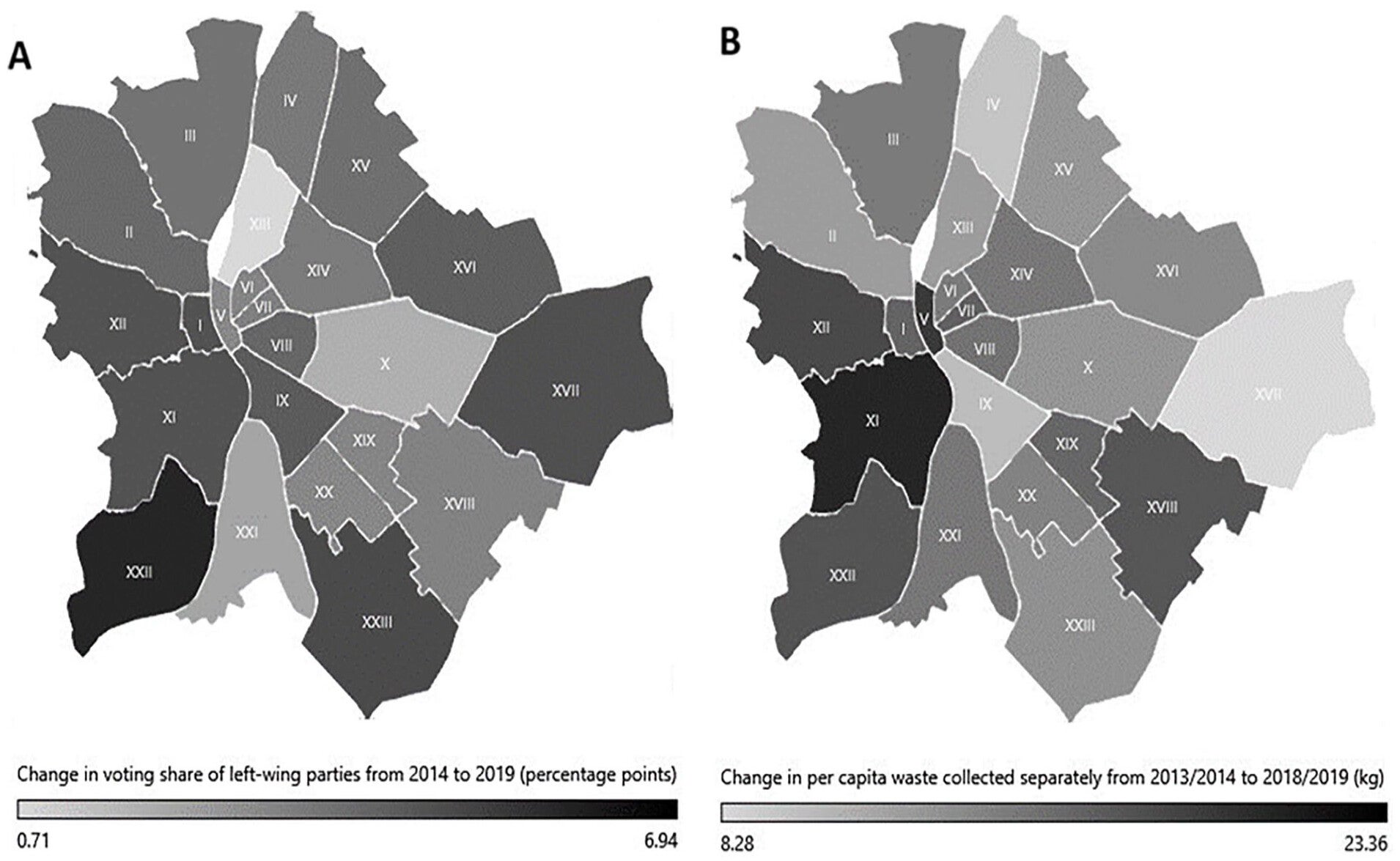Are Left-Wing Voters Really More Environmentally Conscious?

Focusing on this everyday environmental practice, the researchers explored whether a correlation exists between political orientation and environmentally conscious behaviour in Budapest. Their initial hypothesis—that left-wing individuals are more environmentally engaged—was tested using data from the 2014 and 2019 municipal and European Parliament elections in Budapest. The study, authored by Barna Bakó, Zombor Berezvai, Péter Isztin, and József Ráti, was published in late April in the journal East European Politics and Societies.
According to existing literature, eco-friendly attitudes can be measured through participation in various environmentally related activities—selective waste collection being one of the most accessible indicators. While the total volume of municipal waste in Budapest did not increase between 2013 and 2020, the volume of selectively collected waste rose significantly. Corvinus researchers used this data as a behavioural indicator of environmental awareness in their analysis.
Between the 2014 and 2019 elections, left-wing parties gained significant ground in Budapest. In 2014, left-leaning mayoral candidates won in only 5 out of 23 districts. By 2019, they had secured victory in 14. During this same period, the data shows that sustainability became a more important issue for the Hungarian public.
Interestingly, the researchers also observed that right-wing parties tended to lose more support in districts where the increase in selective waste collection was smaller. Conversely, their support declined less in areas where selective waste collection grew more robustly. The authors conclude that political preference and environmental behaviour are closely linked in Hungary as well, though in the opposite way compared to most Western countries: environmentally friendly behaviour does not strongly align with the political left.
The researchers also pointed out that previous international studies suggest the relationship between political orientation and environmental attitudes may differ in post-communist Central and Eastern Europe. While in Western Europe, green behaviour is typically associated with left-wing values, in this region, it tends to align more with right-leaning political identities. Until now, this trend had only been observed through survey-based research, but the Corvinus study is the first in Hungary to confirm it using actual consumer behaviour data.